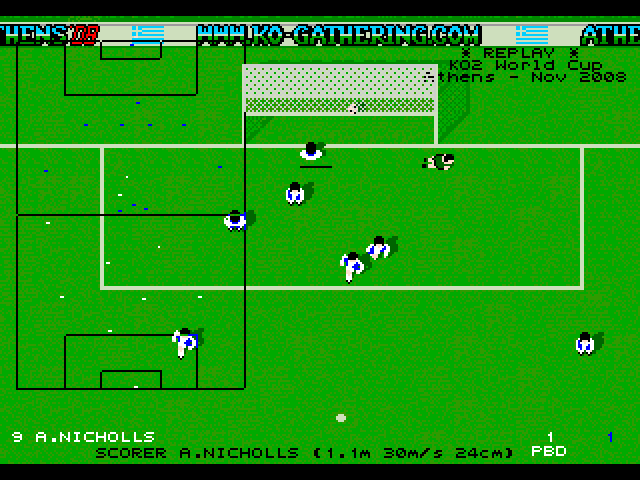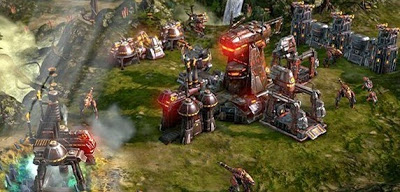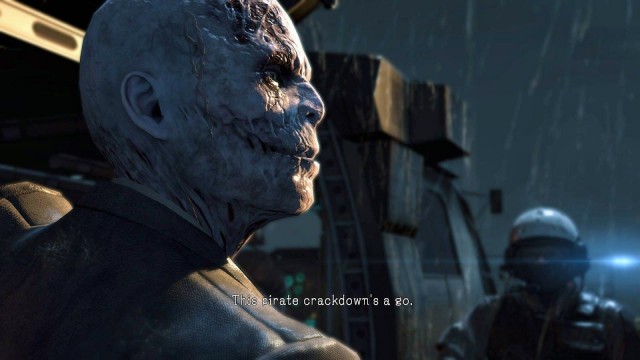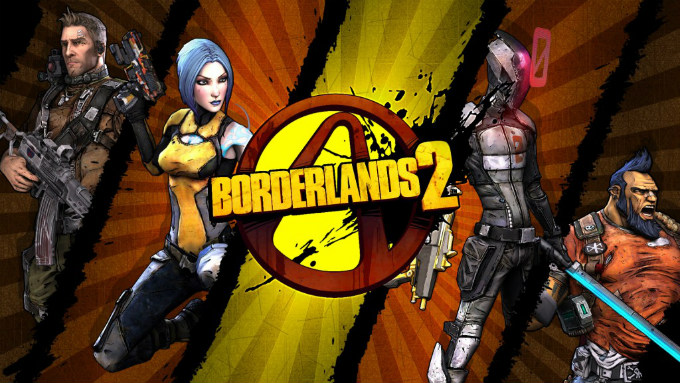


Every now and then there is a new furore over games journalism: “do we need it”, “what is the ‘standard’ way of doing this thing”, “is it ethical to do this other thing”, “what is a games journalists place in the games industry”.
There are usually two reactions to these outbursts: those who wade in and argue and debate and discuss; and those who sit on the side-lines either mocking the debate or merely ignoring it. These debates and arguments inevitably become very nasty, and often very personal. Sometimes a few people have to watch helplessly as their careers are thrown under buses. Sometimes a few people get fed up and just walk away from games journalism entirely. The end result, however, is always the same: nothing is decided and everyone distrusts games journalists just a little bit more. At this stage, I’m surprised that ‘games journalist’ isn’t a title that is spat out in the same tone as ‘paparazzi’.
I often have sympathy for those who try to ignore these raging cluster-fucks disguised as debates, because those who ignore the arguments tend to be the ones who get on and do their jobs, our jobs: to produce good quality content informing the general public of the state of certain aspects of the video game industry and offering intelligent comment on those same aspects. Whether this content is news announcements, reviews, previews, developer interviews, opinion pieces or feature pieces; these solid journalists keep the cogs turning. That’s not to say that everyone else just stops working, of course they don’t, but time spent arguing about games journalism is not time spent talking about games.
How can you know the answer to a question that has never been asked in earnest?The ‘ignore the argument until it blows over’ camp, whether they know it or not, focus on what’s important: producing good quality journalism.
But here’s the thing: how do you know what “good quality games journalism” is, unless you talk about it and come to some kind of general consensus? How can you know the answer to a question that has never been asked in earnest? Simply, you don’t and you can’t. You can guess and you can hold yourself to a personal set of standards; but there are no real measuring sticks for success, quality or ethical behaviour.
At the moment, games journalism is like the Wild West of journalism: bloggers with no sort of quality control or standards get away with calling themselves ‘journalists’ and those deserving of the name journalist are passed over by a distrustful and often sneering public: “all journalists are corrupt”, “they take bribes for good review scores”, “they only cover games because they are popular or they were bribed”, “games journalists are just a bunch of parasites living off the hard work of developers”, or my personal ‘favourite’ “they’re only games, they can’t be important enough to warrant proper journalism”.
The cynic in me often wonders whether we can actually complain about these accusations. People naturally distrust what they don’t understand, and when even those inside the games journalism world have no clue how everyone else operates, how can we expect our audience to do anything other than follow human nature and be suspicious of us?
You can’t hide your head in the sand and expect everything to just magically fix itself. That’s not how the world works. I think we have enough evidence for me to be able to confidently predict that these arguments will keep recurring until such time as the issues are discussed and a consensus reached on what constitutes best practice. Even when appropriate standards have been set down, it may periodically be necessary to revise and update them. Games journalism will be a very different beast in ten, twenty or thirty years’ time.
This is the nature of the world we live in. We live in an era of rapid sociological and technological change. Society’s views on a whole plethora of topics are changing and these alterations are, of course, having a significant impact on our culture. Moreover, gaming is a medium that, perhaps more than any other, is subject to both the whims of society’s views and the swift currents of technology.
Journalism as a whole is in a state of flux due to new technology; many traditional practices have been rendered all but obsolete, at least one new branch of journalism has been recently created and technology continues to throw surprise after surprise at us, seemingly on a weekly basis.
The invention of the internet alone has changed so much for journalism. We can now get in touch with people on the other side of the world in an instant. We can interview people by email and have a response the very next day, or we can use programs like Skype and have a face-to-face interview without travelling thousands of miles. Press releases, leaks and rumours circulate at the speed of light and can reach potentially hundreds of millions of people inside a few hours. We have already had to evolve and adapt to survive in this age of information.
The games industry is itself in a state of upheaval: the once nascent independent scene has come surging into the limelight, encroaching on territory that was once the exclusive preserve of massive publisher-backed studios. Just this past week I conducted an interview with the lead developer of Xenocell who talked about design decisions that may well provide solutions for problems that have plagued the games industry for over a decade.
Intelligent people are developing intelligent solutions to old problems, old genres are being revitalised, new genres are appearing and common tropes and rules of thumb are being thrown out in favour of advancing the boundaries of what I believe may well be the greatest medium humanity has ever devised. Certainly it’s the greatest in its fusion of the most important aspects of our society.
In the face of this innovation, this wave of creativity, how can we not discuss our place in the world? How can we be content to just carry on as we always have? If we don’t move with the times, we risk becoming stale and outdated; our contribution marginalised and made unimportant in the face of all this. Video games are a part of our culture and of our history. Games journalism is a part of the video game culture and if we decide to stay home and write, for the umpteenth time, that list of our top 20 favourite Final Fantasy scenes, we deprive future generations of an insight into the history of games journalism. George Orwell was writing half a century ago, yet his political observations remain as astute today as they were then. When is games journalism going to have its Animal Farm, its Nineteen-Eighty-Four? We won’t know if we allow ourselves to stagnate.
In short, we have to discuss games journalism. The pretence that we can ‘just carry on’ is, to be blunt, silly. If we adopt the ‘just carry on’ view, we may as well be sitting on a beach with our eyes closed and our fingers in our ears as the tsunami of progress sweeps us away.




 How to Get Your Resume Past the Applicant Tracking System
How to Get Your Resume Past the Applicant Tracking System How to avoid the Skull Soldiers in Episode 1 MGS V: The Phantom Pain
How to avoid the Skull Soldiers in Episode 1 MGS V: The Phantom Pain Borderlands 2 Class Modification Units | Class Mod Guide
Borderlands 2 Class Modification Units | Class Mod Guide Weapons Guide for Watch Dogs
Weapons Guide for Watch Dogs Where To Find Unique and Exceptional Weapons In Fallout 4, Full List and Their Effects Revealed
Where To Find Unique and Exceptional Weapons In Fallout 4, Full List and Their Effects Revealed